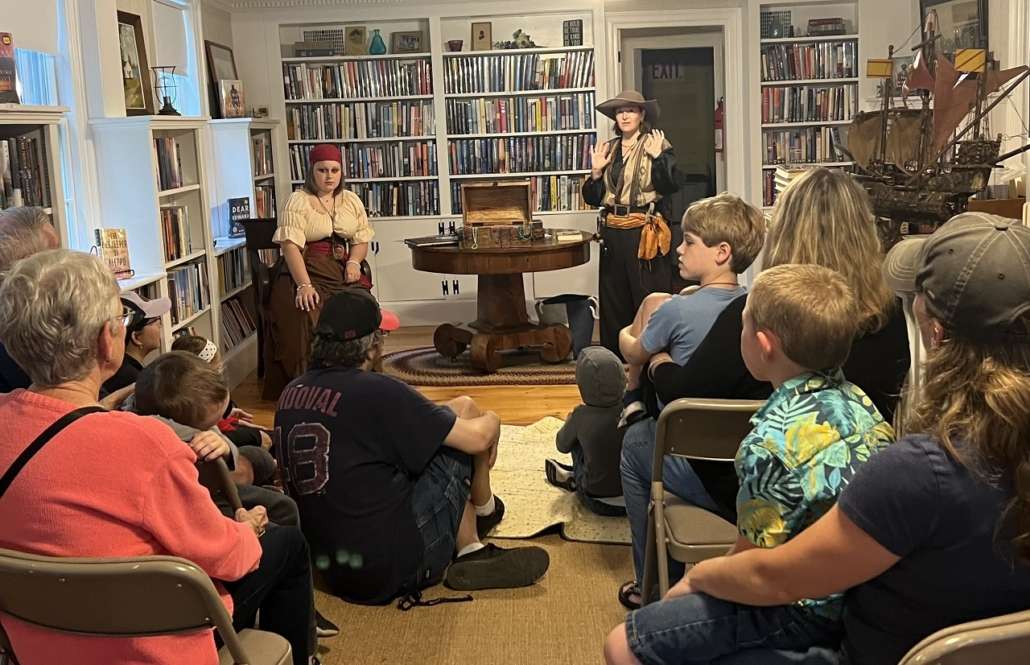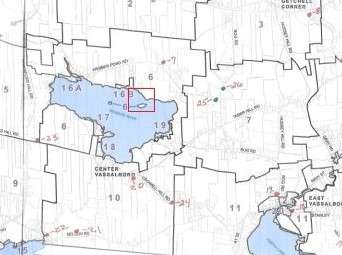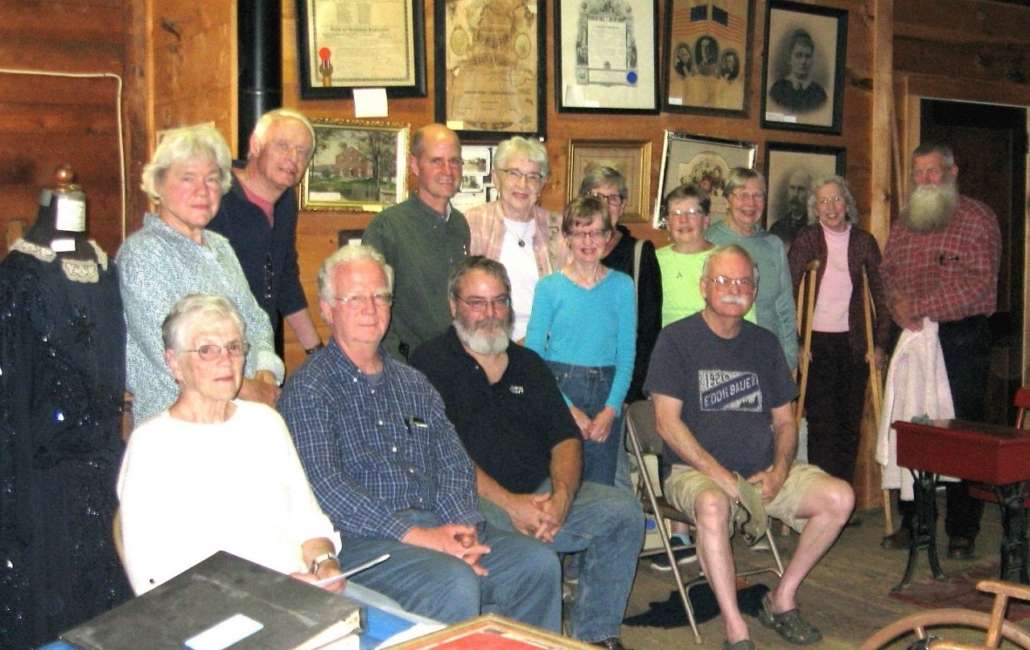
(photo credit: Erskine Academy)
Grade 12
High Honors: Carson Appel, Kassidy Barrett, Abigail Beyor, Eve Boatright, Katherine Bourdon, Breckon Davidson, Nicole DeMerchant, Lillian Dorval, Hailey Farrar, Loralei Frandsen, Lilly Fredette, Ciara Glidden, Alivia Gower, Carson Grass, Cooper Grondin, Nabila Harrington, Grady Hotham, Grace Hutchins, Olivia Hutchinson, Hallie Jackson, Kaiden Kelley, Jakob Kennedy, Casey Kirkpatrick, Siena Klasson, Meadow Laflamme, Emmet Lani-Caputo, Zephyr Lani-Caputo, Dale Lapointe, Dinah Lemelin, Brenden Levesque, Bryce Lincoln, Gwen Lockhart, Kendal Longtin, Malachi Lowery, Emily Majewski, Lily Matthews, Maddison Paquet, Timber Parlin, Kayla Peaslee, Jonathan Peil, Gabriel Pelletier, Sophia Pilotte, Kaden Porter, Alexis Rancourt, Cadence Rau, Samantha Reynolds, Ally Rodrigue, Conner Rowe, Jarell Sandoval, Gabriela Sasse, Zuriah Smith, Sophie Steeves, Daniel Stillman, Emma Stred, Paige Sutter, Mackenzie Toner, Emma Tyler, Katherine Williams, Damon Wilson and Joseph Wing. Honors: John Allen, Morgan Bergeron, Angel Bonilla, Kayleen Crandall, Grace Ellis, Brianna Gardner, Mallary Hanke, Alexzander Hoffman, Beck Jorgensen, Matthew Knowles, Noah Leeman, Brady Mayberry, Caleb McCaslin, River Meader, Gage Moody, Angelina Ochoa, Ethan Ouellette, Ezra Padgett, Hannah Patterson, Karen Potter, Paige Reed, Noah Rushing, Emmalee Sanborn, Kiley Stevens, Matthew Terry, Colby Willey and Aidan Witham.
Grade 11
High Honors: Jana Alfoudari, Tristan Anderson, Robin Boynton, Elizabeth Brown, Nolan Burgess, Makayla Chabot, Elise Choate, Simon Clark, Alexia Cole, Noah Crummett, Gavin Cunningham, Hailey Estes, Kaylee Fyfe, Aaralyn Gagnon, Caleb Gay, Trinity Hyson, Hannah Kugelmeyer, Aidan Maguire, Liberty Massie, Akela Mitchell, Austin Nicholas, Jeremy Parker, Nathan Polley, Jessica Pumphrey, Keith Radonis, Kinsey Stevens, Reese Sullivan, Haley Webb and Baruch Wilson. Honors: Abigail Adams, Lacey Arp, Duncan Bailey, Wyatt Bray, Dylin Breton, Kaleb Brown, Carol Caouette-Labbe, Nathalia Carrasco, Timothy Christiansen, Thomas Crawford, Caleigh Crocker, Brielle Crommett, Hunter Foard, Hailey Fongemie, Jackson Gamblin, Brayden Garland, Tucker Greenwald, Benjamin Hall, Nathan Hall, Tara Hanley, Natalie Henderson, Kameron Kronillis, Mackenzie Kutniewski, Logan Lanphier, Sophie Leclerc, Richard Mahoney III, Johanna Malitz, David McCaig, Holden McKenney, Lucas Mitchell, Alyssa Ouellette, Kevin Pelletier, Evelyn Rousseau, Giacomo Smith, Adam St. Onge, Lara Stinchfield, and Jack Uleau.
Grade 10
High Honors: Ava Anderson, Emmett Appel, Bryana Barrett, Geneva Beckim, Octavia Berto, Jayda Bickford, Brooke Blais, Olivia Brann, Carter Brockway, Keenan Clark, Paige Clark, Madison Cochran, Hannah Cohen-Mackin, Andra Cowing, Lauren Cowing, Gabrielle Daggett, Aidan Durgin, John Edwards, Ryan Farnsworth, Keeley Gagnon, Hailey Garate, Ellie Giampetruzzi, Kaylene Glidden, Jonathan Gutierrez, Serena Hotham, Ava Kelso, Rion Kesel, Sophia Knapp, Chase Larrabee, Shelby Lincoln, Owen Lucier, Eleanor Maranda, Jade McCollett, Abigail McDonough, Madison McNeff, Colin Oliphant, Makayla Oxley, Wallace Pooler IV, Elsa Redmond, Lillian Rispoli, Nathan Robinson, Laney Robitaille, Carlee Sanborn, Aislynn Savage, Zoey Smith and Katherine Swift. Honors: Daphney Allen, Haileigh Allen, Noah Bechard, Rylan Bennett, Kaleb Bishop, Lauryn Black, Dylan Cooley, Lillian Crommett,Trinity DeGreenia, Aydan Desjardins, Brady Desmond, Tristan Goodwin, Blake Grady, Brandon Hanscom, Echo Hawk, Emma Henderson, Kailynn Houle, Parker Hunter, Alivia Jackson, Walker Jean, Rachel Johnson, Bodi Laflamme, Jack Lucier, Justice Marable, Shannon McDonough, Elijah Moore, Kaeleigh Morin, Gavyn Paradis, Riddick Peaslee, Noah Pelletier, Ava Picard, Bronwyn Potter, Zeke Ramsay, Victoria Rancourt, Carter Rau, Justin Reed, Joslyn Sandoval, Kyle Scott, Jordyn Smith, Emily Sprague, Parker Studholme, Grant Taker, David Thompson III, Kaylee Tims, Grace Vashon and Clara Waldrop.
Grade 9
High Honors: Connor Alcott, Emily Almeida, Savannah Baker, Kylie Bellows, Landon Boynton, Addyson Briggs, London Castle, Nathan Choate, William Choate, Drew Clark, Lillian Clark, Madeline Clement-Cargill, Joshua Denis, Lauren Dufour, Madison Gagnon, Stephen Gould, Madison Griffiths, Mia Hersom, Halle Jones, Parker Minzy, Jack Murray, Elijah Nelson, Bayley Nickles, Jordyn Parise, Ruby Pearson, Abigail Peil, Elijah Pelkey, Isabelle Pelotte, Emily Piecewicz, Taisen Pilotte, Hannah Polley, Alexander Reitchel, Owen Robichaud, Leahna Rocque, Jackie Sasse, Edward Schmidt, Jaelyn Seamon, Kathryn Shaw, Nichala Small, Blake Smith, Haidyn Smith, Madelynn Spencer, Kayla Stred, Gentry Stuart, Abigail Studholme, Donovan Thompson, Finnegan Vinci and Addison Witham. Honors: Anders Bassett, Julia Booth, Brock Bowden, Kolby Caswell, Timothy Clavette, Claire Davis, Sylvia Davis, Audryanna DeRaps, Charles DeSchamp, William Ellsey Jr., Jacob Faucher, Brandon Haley, Aiden Hamlin, Benjamin Hanke, Willow Haschalk, Cadence Homstead, Aidan Huff, Jacob Hunter, Kasen Kelley, Timothy Kiralis, Savannah Knight, Kayle Lappin, Jacob Lavallee, Laylah Leach, Ava Lemelin, Brianne Libby, Hayden Little, Kloie Magoon, Tucker Nessmith, Phoebe Padgett, Gwendolyn Parker, Jackson Pelotte, Lilian Piecewicz, Desirae Proctor, Eli Redmond, Brynna Rodrigue, Kameron Rossignol, Autumn Sawyer, Briella Scanavino, Benjamin Severy, Eva Simmons, Benjamin Sullivan, Leah Targett, Phoebe Taylor, Kammie Thompson, Addison Turner, Charles Uleau, Oryanna Winchenbach and Brody Worth.
 by Mary Grow
by Mary Grow






 Bar Harbor Bank & Trust employees recently presented more than $19,000 in donations collected through the bank’s employee-driven charitable giving program, Casual for a Cause, to nine nonprofit organizations serving Maine, New Hampshire, and Vermont residents. The recipients of the donations are: Eastern Maine Community College Foundation, Kennebec Valley Community College Foundation, Lubec Community Outreach Center, Machias Area Food Pantry, and Schoodic Food Pantry in Maine; Dismas Home of New Hampshire and The River Center in New Hampshire; and BarnArts Center for the Arts and Village for Paws Rescue in Vermont.
Bar Harbor Bank & Trust employees recently presented more than $19,000 in donations collected through the bank’s employee-driven charitable giving program, Casual for a Cause, to nine nonprofit organizations serving Maine, New Hampshire, and Vermont residents. The recipients of the donations are: Eastern Maine Community College Foundation, Kennebec Valley Community College Foundation, Lubec Community Outreach Center, Machias Area Food Pantry, and Schoodic Food Pantry in Maine; Dismas Home of New Hampshire and The River Center in New Hampshire; and BarnArts Center for the Arts and Village for Paws Rescue in Vermont.



